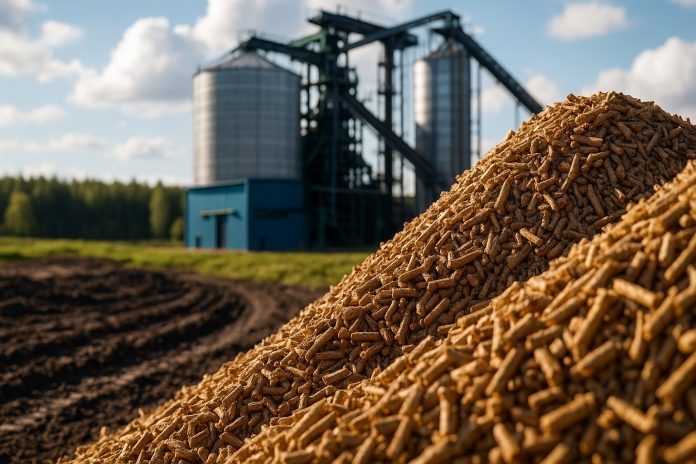If you’re planning to establish a biomass facility or considering a fuel switch from natural gas to biomass in Pakistan, it’s worth exploring how to unlock its full potential, not through energy savings, but also by generating revenue from carbon credits.
When structured correctly, fuel-switch projects that replace fossil fuels with biomass can become carbon-credit generating assets. When properly structured, fuel-switch projects that replace fossil fuels with biomass can qualify for carbon credits, which will turn your industrial processes into revenue-generating climate actions. The mechanism is straightforward: emission reductions are quantified, independently verified, and converted into tradeable carbon credits, each representing one metric ton of CO₂ equivalent. These credits hold real market value and can be sold to corporations seeking to offset their emissions or meet compliance targets.
Countless companies in Pakistan like textiles, cement and FMCGs are adopting biomass as a cleaner alternative to fossil fuels, particularly for thermal energy and electricity needs. From sugar mills repurposing bagasse to agri-processors leveraging husks and shells, the transition is well underway. However, what remains vastly underutilized is the potential to monetize these emission reductions through carbon credits.
Recognizing this untapped potential, Resources Future works closely with industrial clients in various sectors to structure their biomass fuel-switch projects in line with international carbon standards such as Verra and Gold Standard. These transitions are often substantial enough to subsidize a significant portion of the biomass investment over the crediting period. Beyond the financial upside, these projects help exporters respond to growing pressure from global buyers who now demand credible decarbonization progress and Scope 1 and 2 emissions disclosure. Then, there is an upcoming pressure to go green with EU’s CBAM that also requires our companies to embrace early sustainability measures.
But here’s where the missed opportunity lies: most companies using biomass aren’t registering their projects for carbon credits. These are verified emissions avoided by switching from fossil fuels to renewable biomass—reductions that have value in both voluntary and compliance carbon markets.
How Do Biomass Projects Qualify?
The eligibility is straightforward. If your facility has made a verifiable switch from fossil fuels to biomass for thermal or electrical use, or if you are running a biogas, waste-to-energy, or combined heat and power (CHP) system, there’s a high chance your project qualifies for carbon credits under recognized standards such as Verra, Gold Standard, or emerging Article 6-compliant registries. Yet, many companies hesitate due to the perceived complexity of entering carbon markets. That’s where Resources Future comes in.
As a leading climate advisory firm in Pakistan, Resources Future now offers a bespoke assessment to help you understand whether your project qualifies for carbon credits. The service includes:
- Eligibility Screening under Verra, Gold Standard, and Pakistan’s emerging Article 6 framework
- Emission Reduction Calculations and cost-benefit analysis including credit revenue projections
- Which Carbon Standard to Choose From as we help you identify what standard to choose and how best to monetize them.
With this comprehensive service, Resources Future can help project owners decide whether pursuing carbon credits will be financially viable—and if so, how best to proceed. The goal is to de-risk your entry into carbon markets and fast-track the monetization of your emission reductions.
“We’re seeing industrial clients surprised by how much value is left on the table,” says Minha Hanif, the Carbon Markets Lead at Resources Future. “Our role is to quantify that value and turn it into a new revenue stream—without disrupting their core operations.”
With Pakistan’s new carbon policy aligned with the Paris Agreement’s Article 6 mechanisms, and international demand for carbon offsets growing, early movers stand to benefit the most. The infrastructure to verify, register, and sell high-quality carbon credits is now maturing, and biomass energy is among the most accessible and scalable routes to tap into this market.
If your company is already using biomass or planning a transition, the time to assess carbon revenue potential is now—not later.
Interested in learning more?
Resources Future is currently offering feasibility service at a nominal fee to help companies make informed, data-backed decisions about their carbon market entry.
📩 Reach out at: [email protected]
🌐 Learn more: www.resourcesfuture.com
📞 Call: 0370-1816461


